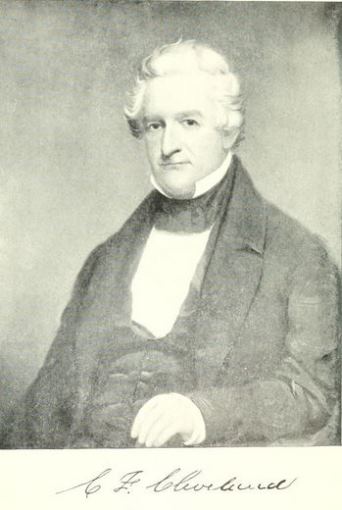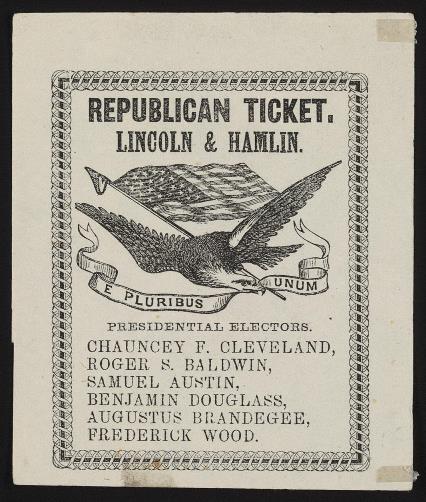Chauncey Fitch Cleveland was a lawyer and politician who served the state of Connecticut, and the nation, in a variety of different positions, despite never pursuing a college education. His career included appointments to such prestigious posts as probate judge and state attorney,and he served as a representative in Congress and the Connecticut General Assembly. His most renown contributions, however, came as Connecticut’s 14th governor, when, among other accomplishments, Cleveland passed legislation placing limits on child labor.
Born February 16, 1799, Chauncey Cleveland grew up in Hampton, Connecticut, and attended the town’s public schools. Cleveland then taught school from the age of 15 until he was 20, and he also served in the state militia.
Though he never attended college, Cleveland pursued an interest in the law—studying under Daniel Frost of Canterbury. He passed the bar in 1819, at the age of 20, and opened a practice in Hampton.

Reproduction of an oil painting of C. F. Cleveland from the The Governors of Connecticut by Frederick Calvin Norton, 1905
Connecticut’s 14th Governor
Cleveland’s foray into politics started with his election to the Connecticut House of Representatives in 1826. He spent the better part of the next decade serving there, twice as Speaker of the House. It was a period of his life that also witnessed him serve as the state’s attorney (1832) and as Connecticut’s bank commissioner (1838).
In 1841, Cleveland moved to Norwich and, the following year, began serving the first of two consecutive terms as Connecticut’s governor. During his time in office he passed legislation that prohibited children under 14 from working more than 10 hours per day. He also brought an end to the era of debtor’s prison in the state, passed funding for the creation of a new mental health facility, and provided extra legal protection for Jewish houses of worship in Connecticut.
After failing to win reelection in 1844, Cleveland returned to his law practice in Hampton but soon found himself back in the political spotlight. He served in the Connecticut House of Representatives from 1847 to 1849 and then in the US House of Representatives from 1849 until 1853.
In the years that followed, an abhorrence for slavery inspired Cleveland to join the fledgling Republican Party. He organized the formation of the party in Connecticut and served as a delegate to the Republican National Convention in 1856 and ’60. In 1861 he became a member of the peace convention held in Washington, DC, with the intention of steering the nation clear of the impending war.
After another stint in the State House of Representatives, which witnessed another term as Speaker of the House, Cleveland finally retired from politics, spending the rest of his years practicing law and engaging in a love of agriculture. He died in Hampton on June 6, 1887, and received a burial at the Hampton South Cemetery.









